This is not a post about the War of the Spanish Succession (1701-1714). That would be long and boring and not gameable. This is a post about the political crisis that led to the war – which is long and interesting and very gameable! Stick with me, folks, because this is going to get weird!
This post is brought to you by beloved Patreon backer Arthur Brown. Thanks for helping keep the lights on! If you want to help keep this blog going alongside Arthur, head over to the Patreon page – and thank you!
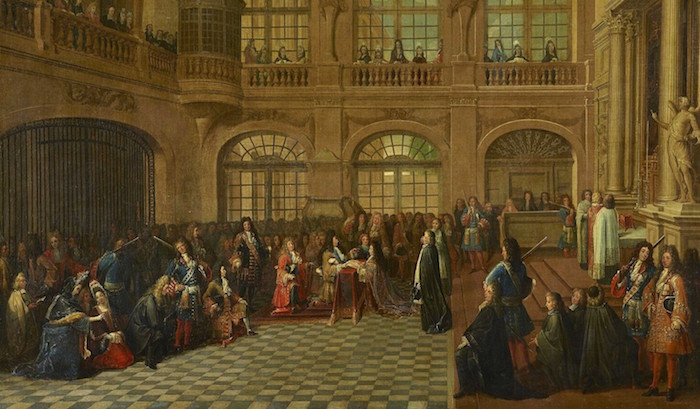
To understand this strange political crisis, you first have to understand what an odd moment this was in European history. The nations of Europe had spent the past century or two fighting very hard to keep anything much from happening. In the 1500s (ish), Spain had been the dominant power on the continent, fueled by the great wealth it stole from the Americas. Most of Europe formed a shaky alliance to beat up on Spain before Spain could beat up on them individually. Now in the 1600s, France was the dominant power. Most of Europe joined a series of pacts and leagues to attack France for the same reason.
This was ‘balance of power’ politics. Driven by a desire not to be conquered, most nations worked together to keep the most powerful among them contained. The result was decades of war, millions dead, and only a few minor territories changing hands here or there. Despite the oh-so-complicated webs of alliances, the endless betrayals, and the absolute meat grinder the peasantry had to endure, at the end of each war of containment, little of consequence ever changed.
The impending death of King Carlos II of Spain was one more threat to the balance of power. Carlos had no heir. His closest living relatives weren’t Spaniards. It seemed likely that, upon his death, control of Spain would pass to the ruling house of a different European nation. That nation would gain not just Spain, but also the Netherlands, most of America, much of Italy, and the Philippines. Bolstered by this newfound revenue, this nation might then be strong enough to take on all of Europe and win. So out came the diplomats. Their goal: to convince enough other nations that their royal family should inherit the Spanish throne.
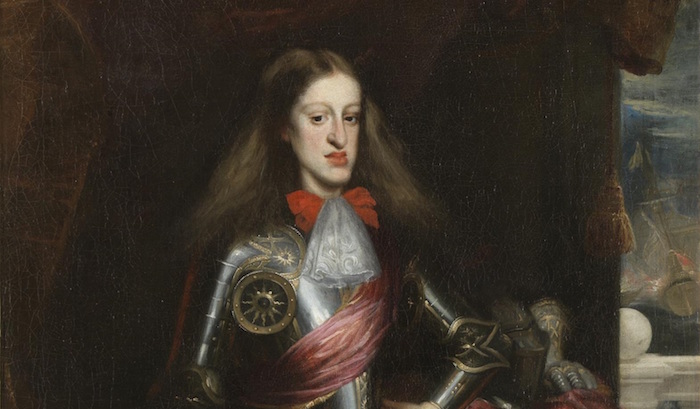
We have three major players here. The first is King Carlos II of Spain. Carlos was born sick and lived his whole life sick. In English, he was called Charles the Sufferer. In Spanish, he was Carlos el Hechizado (‘the Bewitched’). Over his life, he suffered from what surely felt like every infection and congenital disease known to his doctors. The most obvious was his pronounced ‘lantern jaw’, which made eating and speaking difficult. It’s also possible he suffered from intellectual developmental disabilities. From the moment of his birth as his parents’ sole heir, his death was anticipated at any moment by the courts of Europe. That he made it to age 38 is a miracle.
Carlos was of the House of Habsburg, a German noble family that had an astonishing run of good fortune with marriage alliances in the late 1400s. Habsburgs kept marrying into royal families, conceiving heirs, and then having all the necessary members of these royal families die, leaving a Habsburg the sole heir. This truly incredible run of luck culminated in Carlos’ great-great-grandfather being simultaneously the Holy Roman Emperor; King of Castille, Aragon, Naples, Sicily, Sardinia, and Hungary; Archduke of Austria; Lord of the Netherlands; and more besides – all nominally separate countries (more or less) who just happened to have the same king. After that guy, the Habsburgs were pressured into splitting their family into two branches. One would rule Spain (and its holdings), the other Austria (and its holdings).
Carlos’ medical conditions were the result of the Habsburgs’ notorious inbreeding. More than anyone, the Habsburgs knew that what they’d gained by marriage, they could lose by marriage. The Austrian and Spanish Habsburg branches intermarried constantly. All eight of Carlos II’s great-grandparents shared a recent ancestor. This all led not only to Carlos’ sickliness, but also to his impotence, which guaranteed he could not produce an heir.
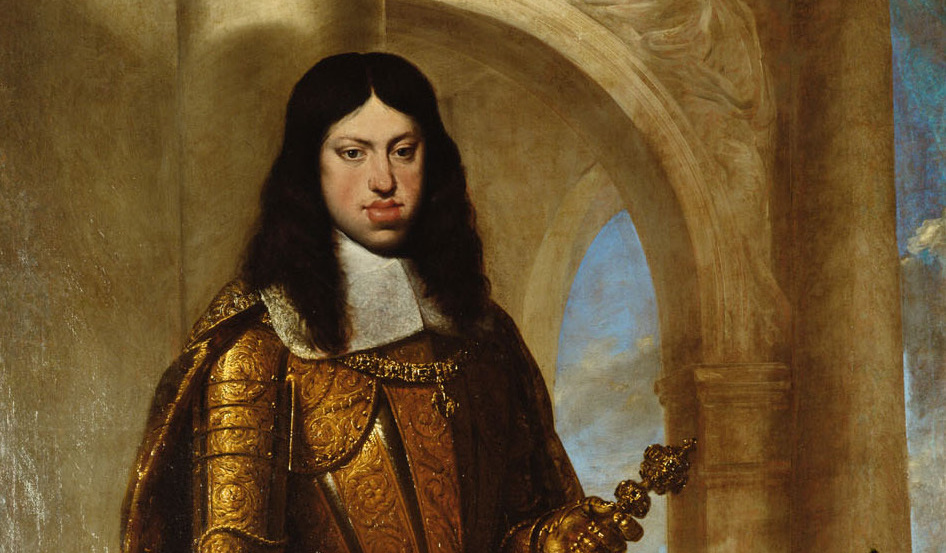
Carlos’ counterpart, the head of the Austrian branch of the family, was Leopold I. Leopold was a remarkable man. He spoke five languages, composed music, and cared deeply about statecraft. He was also a mild-mannered vacillator and a fanatical Catholic. Like Carlos, Leopold was absurdly inbred. His jaw stuck out so far, he couldn’t keep water out of his mouth when it rained. Leopold I sat atop a jumbled-together collection of kingdoms, duchies, and principalities, including Austria, Bohemia, Hungary, Styria, Moravia, Tyrol, and Croatia. He was also the Holy Roman Emperor, but that title came with little power and few responsibilities.
As a Habsburg, Leopold had an excellent male-line claim to the Spanish throne. This was handy, since not all of Carlos II’s Spanish empire recognized that rulership could be passed down the female line. But in case that wasn’t enough, Leopold was also married to Carlos’ sister, Margarita Theresa. He was supposed to marry Margarita Theresa’s older sister, Marie Theresa, but Marie had to be married off at the last minute to King Louis XIV of France after Spain lost a war with France in 1659. Carlos and Leopold hastily arranged for Leopold to marry the younger Margarita Theresa instead, but that had to wait awhile, as Margarita Theresa was only nine at the time.
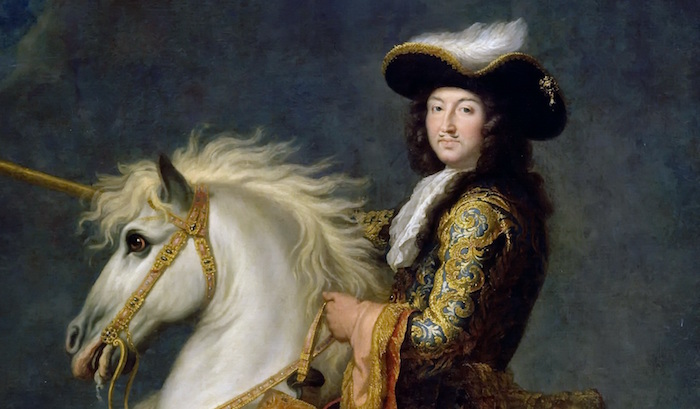
And this is where we introduce the other major claimant to the Spanish throne: France. King Louis XIV’s wife was the oldest sister of King Carlos II, giving Louis and Marie Theresa’s oldest son, the Grande Dauphin, an excellent claim to the throne of Spain. When Louis XIV died, that would make the Grande Dauphin king of France and Spain simultaneously. Admittedly, part of Louis XIV and Marie Theresa’s marriage contract was a promise that Marie Theresa renounce any claim on Spanish inheritance, but that promise was predicated on Spain paying France a sum it could not afford and never paid. Furthermore, this was an era where monarchs were believed to have been appointed by God. Could royalty renounce their inheritance? It was unclear.
It’s difficult to talk about Louis XIV as a person (in other words, as an NPC) instead of merely as a ruler, because so much of who he was as a person was bound up in being an absolute monarch. His famous quip “I am the state” kind of sums it up. On top of that, he was a womanizer and a grand patron of the arts. Like Leopold I, he was a fanatical Catholic, but he wasn’t a strict Roman Catholic. He was a devout Gallican, a long-running strain of Catholicism that holds that there’s something special about the French church, and that it should be permitted to operate free of interference from Rome.
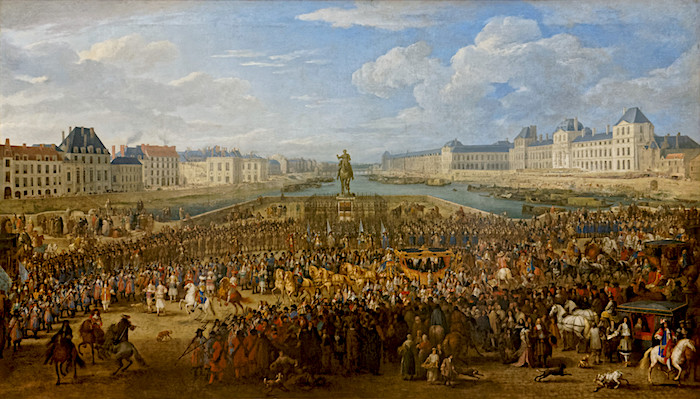
So we’ve got the major players assembled. Leopold I had a claim on the Spanish throne down the male line and via his wife. Louis XIV had a superior claim (or his son did) via the female line, though it was somewhat tainted by Marie Theresa’s renunciation of her inheritance. How did this dispute get resolved?
First, there was an attempt at a compromise candidate. Leopold I and Margarita Theresa had a daughter, who had married the Elector of Bavaria and had a son by him, named Joseph Ferdinand. If that son became the King of Spain, it wouldn’t upset the balance of power; no one cared if Spain and Bavaria were held by the same man. Louis XIV and Leopold I both signed a treaty (the First Partition Treaty) that agreed young Joseph Ferdinand would inherit Spain. In exchange, some Spanish territory in Italy and the Pyrenees would be carved off and given to France and Austria. But Joseph Ferdinand died at age 6, only four months after the First Partition Treaty was signed, so that deal went kaput.
France then met with England behind closed doors to get England’s sign-off on a Second Partition Treaty. This would give most of the Spanish Empire to Leopold’s son Karl and give Spain’s possessions in Italy to France. England signed the treaty, but Leopold did not. He saw Italy as a vulnerable flank France could use to invade Austria. He was willing to pass up a deal that granted him America, the Netherlands, and the Philippines in order to claim Italy.
Carlos (and Spain more broadly) didn’t like any of this. They didn’t want to see Spain’s empire broken up. On September 29th, 1700, Carlos (now sicker than ever) signed a will written by his pro-Habsburg wife. The will designated Leopold’s son (and Carlos’ nephew) Karl the heir to the empire of Spain. Some of Carlos’ ministers disagreed. They saw France – at the time Europe’s greatest military power – as the only nation that could save Spain from being broken apart. They wore down the dying Carlos and on October 30th, convinced him to sign a new will naming Louis XIV’s grandson as his heir. Carlos II died two days later.
Of course, no one outside France or Spain wanted to see the two nations joined. Under international pressure, Louis XIV offered to ignore Carlos’ will and abide by the Second Partition Treaty. Leopold, looking once again at Italy, refused. A Grand Alliance formed to oppose and contain France, and the War of the Spanish Succession raged for thirteen years. Naturally, the war ended in much the same place it began. The other nations of Europe acknowledged Louis XIV’s grandson as the King of Spain, but France and Spain remained separate and the same man was never king of both.
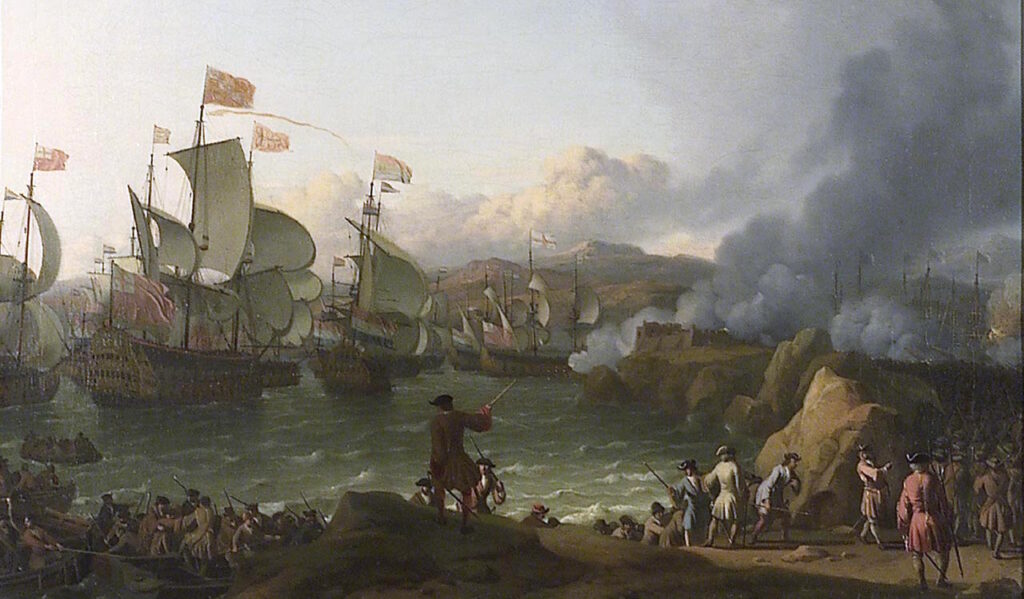
In real life, the diplomats failed to find a solution to the crisis of the Spanish Succession. In your fictional campaign setting, things don’t have to end that way. If you model a succession crisis on this one, powerful movers and shakers might enlist your PCs as diplomats or secret agents. Can the party find (or manufacture) a compromise candidate? Earn the trust of the relevant notables. Find out what they’d be willing to give up – and what they will insist upon. Unearth (or forge) centuries-old documents clarifying or complicating legal ambiguities. Find out which potentates are bribable (or blackmailable) and what they can be bribed with. Money? Fancy titles? Concessions of territory? Or maybe the PCs go in a different direction. If they find a cure for the illnesses plaguing the NPC you based on Carlos, could they defer the crisis for a few decades?
It all ended in tragedy in real life. But if you base a fictional crisis in your ongoing campaign on the crisis of the Spanish succession, maybe your PCs can do better!
–
Source: The Habsburg Monarchy 1618-1815 by Charles W. Ingrao (2000)






